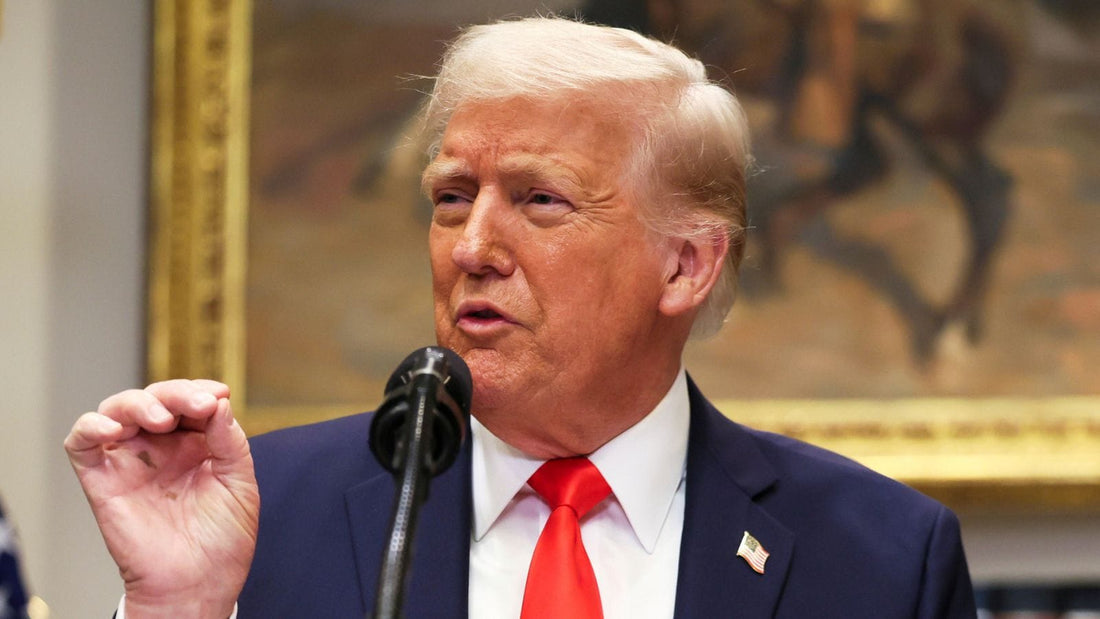Trump's New Tariffs Jolt Markets, Anger Canada
Dr. Anya SharmaTrump's new tariffs on Canada spark market concerns and potential retaliation.

President Trump has escalated trade tensions by imposing a 35% tariff on Canadian imports, effective August 1st, and hinting at broader tariffs for other trade partners. This move has rattled markets and sparked outrage in Canada, raising concerns about potential retaliatory measures and economic consequences.
The announcement signals a more aggressive trade policy under the Trump administration, impacting global commerce and international relations. Investors are now assessing the potential fallout as businesses brace for increased costs and uncertainty..
Highlights
- US imposes 35% tariff on Canadian imports starting August 1st.
- Trump eyes 15%-20% tariffs for most other trade partners globally.
- Canada expresses strong disapproval, potential retaliation looms.
Read More: Xbox to be like Office: Everywhere, says Nadella
Top 5 Key Insights
• Increased Costs for Consumers: Tariffs will likely raise prices for consumers as importers pass on the increased costs. This could lead to decreased consumer demand and slower economic growth.
• Strained International Relations: The new tariffs strain relationships with key allies like Canada, Japan, and South Korea. Retaliatory tariffs could escalate into a full-blown trade war, harming all parties involved.
• Impact on Corporate Earnings: Companies may struggle to absorb tariff costs, potentially leading to lower profit margins. Revisions to corporate margin estimates suggest that some companies may not fully offset tariff impacts.
• Market Volatility: The tariff announcement has already caused market jitters, with potential for further volatility. Investors are closely watching corporate earnings to gauge the true impact of the tariffs.
• Shift in Global Trade Dynamics: These tariffs could accelerate the reshaping of global supply chains. Companies may seek alternative sourcing and production locations to mitigate tariff impacts.
Read More: Jessica Alba's Net Worth: Acting, Business & Real Estate
Expert Insights
Goldman Sachs Research: "Economists assume that companies will pass on 70% of the direct cost of tariffs to consumers through higher prices."
Vanguard Senior International Economist Kevin Khang: "Tariff negotiations are ongoing with multiple nations, which leads to uncertainty and fluidity, so volatility could quickly escalate depending on how things develop."
Read More: Beyoncé's Net Worth Rises, Driven by Tour
Wrap Up
The imposition of tariffs signals a significant shift in global trade dynamics, potentially leading to higher consumer prices and strained international relations. Businesses must adapt to this new reality by reassessing supply chains and pricing strategies.
The long-term effects on economic growth and market stability remain uncertain, requiring careful monitoring and strategic decision-making.
Read More: AI Search Engines Favor Less Popular Sources: Study
Author
Dr. Anya Sharma - A globally recognized business strategist and management consultant with over 18 years of experience. She shares her insights on strategic planning, leadership, and navigating the global business landscape with Enlightnr readers.
More to Explore
- Choosing a selection results in a full page refresh.
- Opens in a new window.




